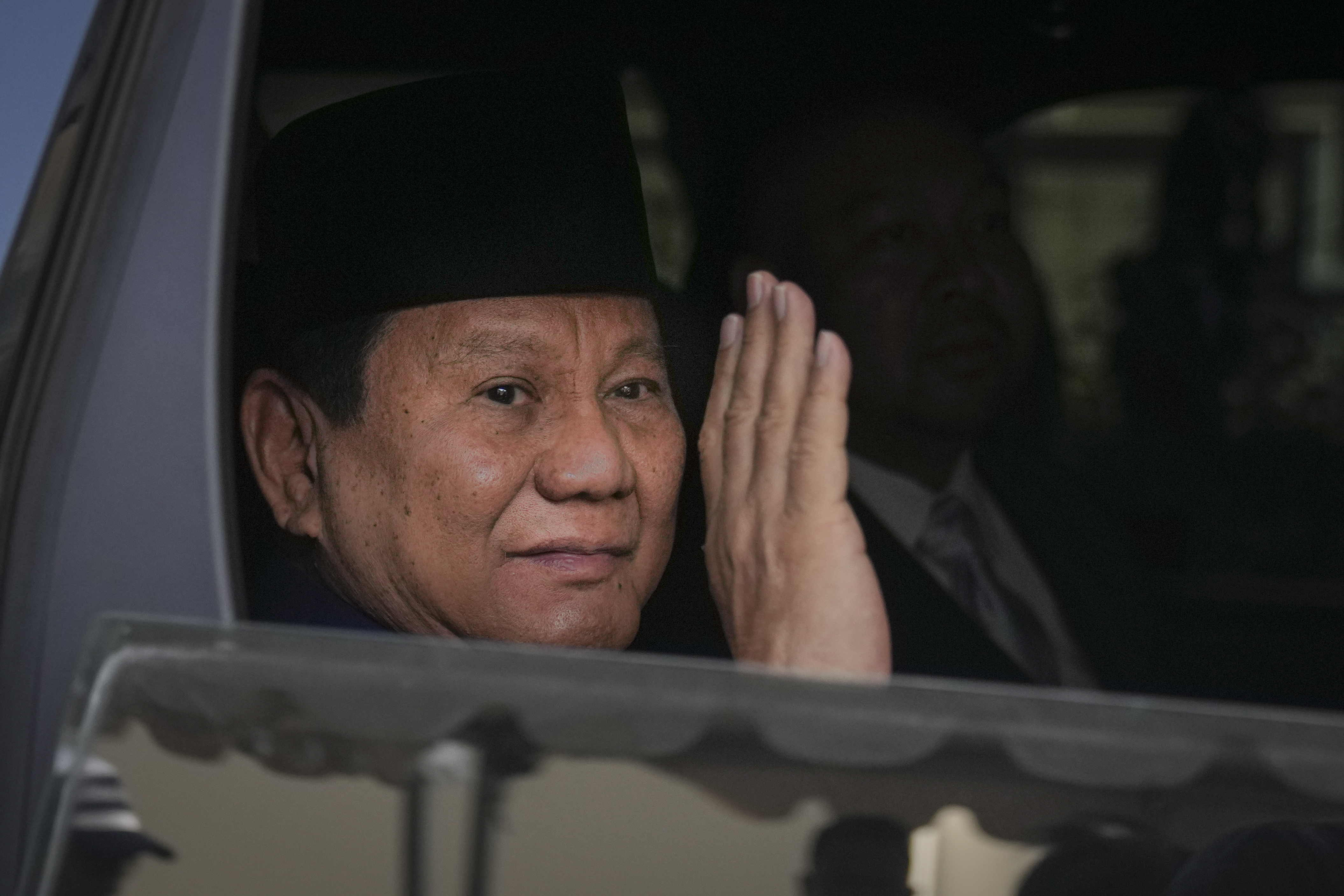
Newly installed Indonesian President Prabowo Subianto is expected to continue his predecessor’s policy of non-alignment as the Southeast Asian nation seeks to balance relations with major global powers, analysts said.
However, they expect Prabowo, a retired army general and former defense minister, will present a “stronger” global image owing to his military background.
James Chin, a professor of Asian Studies at the University of Tasmania in Australia, said Indonesia “has always been the voice of the Third World [and] developing countries. So I don't expect (Prabowo’s) policy to be very different” from former president Joko Widodo.
ALSO READ: Indonesia's Prabowo swears in cabinet of over 100 ministers, deputies
According to Radityo Dharmaputra, a lecturer on international relations at Airlangga University in East Java, Prabowo has a “strong man image” and this is what he will project in the global arena.
Dharmaputra said soon after Prabowo won Indonesia’s national elections in February, he visited several countries including China, France, Japan, and Russia. He said this shows that balancing relations among major powers is “very important” to Prabowo.
Rezha Bayu Oktavian Arief, co-founder and CEO of Jakarta-based social enterprise and advisory firm Obviously Sustainable, said Prabowo is expected to continue Widodo’s policies.
Arief said these include a commitment to non-alignment, promotion of regional stability among members of the Association of Southeast Asian Nations (ASEAN), and strengthening Indonesia’s role as ASEAN’s largest country.
Indonesia is ASEAN’s biggest economy and most populous country.
According to Arief, Prabowo may adopt “a more assertive and nationalistic tone, particularly in the realm of defense and security diplomacy”.
He said Prabowo has a strong interest in defense diplomacy and has pursued security cooperation with China, Russia, and the US to enhance Indonesia’s defense capabilities.
READ MORE: Indonesia ramps up security ahead of Prabowo's inauguration
After being sworn in as the country’s eighth president on Oct 20, Prabowo stressed Indonesia’s independent and active foreign policy during his inaugural speech.
“We do not want to join any military pacts, we choose the path of friendship with all countries,” he said.
Prabowo also noted that Indonesia adheres to the principles of anti-colonialism, anti-oppression, and anti-racism.
He said Indonesia supports the independence of the Palestinian people as Indonesia “must defend the oppressed peoples of the world”.
After his inauguration ceremony, Prabowo announced the members of his cabinet. Among the new appointees was Sugiono, who replaced career diplomat Retno Marsudi as foreign minister.
Sugiono is a former army lieutenant general and deputy chairman of Prabowo’s party, Gerindra (Great Indonesia Movement Party).
Chin, from the University of Tasmania, said Prabowo will also likely maintain Widodo’s stance on strengthening China and Indonesia’s economic cooperation.
ALSO READ: Indonesia's Prabowo defends plan to expand govt with 'fat' cabinet
China is Indonesia’s biggest trading partner and one of its biggest investment sources.
Chin cited the Jakarta-Bandung High-Speed Railway, a flagship project of the China-proposed Belt and Road Initiative that began operations in 2023. He said the railway’s construction shows that Indonesia is keen to tap Chinese technology and investments to advance its own industrialization plan.
“Beyond maintaining a diplomatic balance between the US and China, Prabowo is expected to prioritize advancing the economic cooperation established during Widodo’s presidency,” said Arief, from Obviously Sustainable.
Arief said this aligns with Prabowo’s campaign promise to boost the downstream industries, promote industrialization, and achieve 8 percent GDP growth.
“This agenda will likely lead him to see China as a key source of investment for the large-scale projects he envisions,” he said.
Arief said these include initiatives such as the potential development of a giant seawall from Jakarta to Surabaya, collaborations under the Belt and Road Initiative, and expanding partnerships in the electric vehicle industry.
Leonardus Jegho in Jakarta contributed to this story.
Contact the writer at prime@chinadailyapac.com


